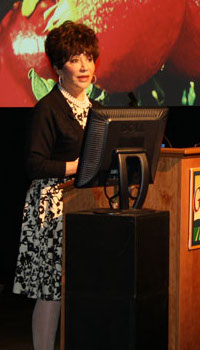Age, Biography and Wiki
Lynda Resnick (Lynda Rae Harris) was born on 1943 in Baltimore, Maryland, U.S., is a businesswoman. Discover Lynda Resnick’s Biography, Age, Height, Physical Stats, Dating/Affairs, Family and career updates. Learn How rich is She in this year and how She spends money? Also learn how She earned most of networth at the age of 80 years old?
| Popular As | Lynda Rae Harris |
| Occupation | Businesswoman writer/columnist |
| Age | N/A |
| Zodiac Sign | |
| Born | 1943 |
| Birthday | 1943 |
| Birthplace | Baltimore, Maryland, U.S. |
| Nationality | Maryland |
We recommend you to check the complete list of Famous People born on 1943.
She is a member of famous businesswoman with the age years old group.
Lynda Resnick Height, Weight & Measurements
At years old, Lynda Resnick height not available right now. We will update Lynda Resnick’s Height, weight, Body Measurements, Eye Color, Hair Color, Shoe & Dress size soon as possible.
| Physical Status | |
|---|---|
| Height | Not Available |
| Weight | Not Available |
| Body Measurements | Not Available |
| Eye Color | Not Available |
| Hair Color | Not Available |
Who Is Lynda Resnick’s Husband?
Her husband is Hershel Sinay Stewart Resnick (m. 1972)
| Family | |
|---|---|
| Parents | Not Available |
| Husband | Hershel Sinay Stewart Resnick (m. 1972) |
| Sibling | Not Available |
| Children | 2 sons |
Lynda Resnick Net Worth
Her net worth has been growing significantly in 2022-2023. So, how much is Lynda Resnick worth at the age of years old? Lynda Resnick’s income source is mostly from being a successful businesswoman. She is from Maryland. We have estimated
Lynda Resnick’s net worth
, money, salary, income, and assets.
| Net Worth in 2023 | $1 Million – $5 Million |
| Salary in 2023 | Under Review |
| Net Worth in 2022 | Pending |
| Salary in 2022 | Under Review |
| House | Not Available |
| Cars | Not Available |
| Source of Income | businesswoman |
Lynda Resnick Social Network
| Wikipedia | |
| Imdb |

